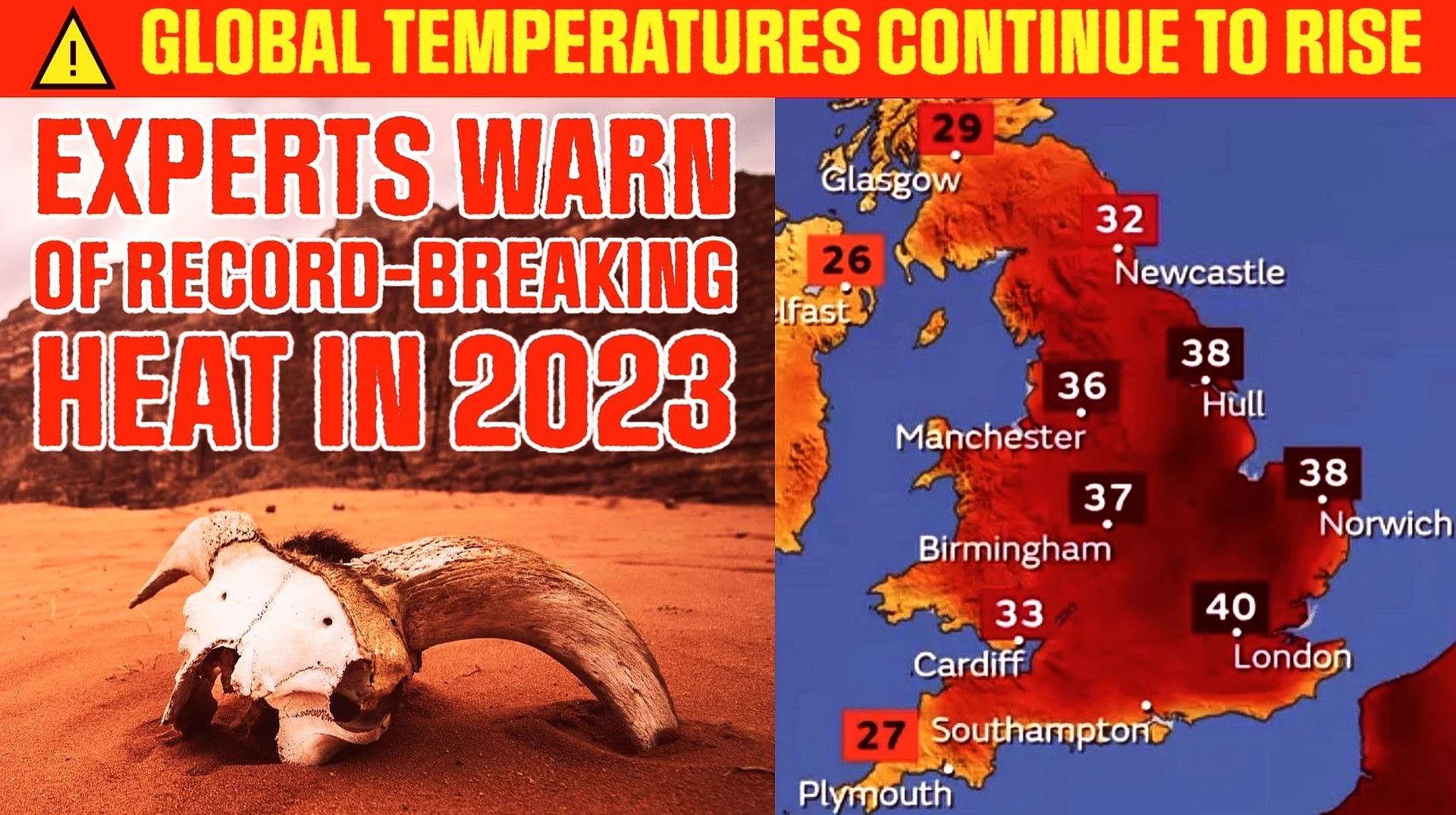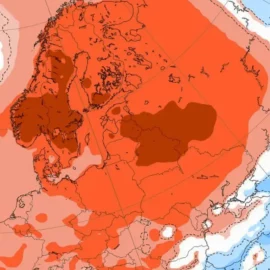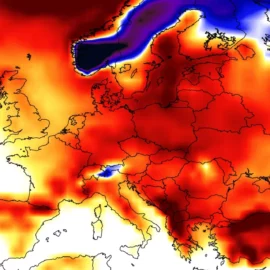
Concerns rise, as global temperatures soar. Possible record-breaking heat for 2023.
This month, global temperatures have reached alarming levels, raising concerns about the climate crisis. Early data indicates that June temperatures are on track to break records, with a potential El Niño event, that could make 2023 the hottest year ever recorded.
Preliminary measurements for June, show that global average temperatures are nearly 1 degree Celsius higher than previous records dating back to 1979. While it's still early in the month and a new June record is not guaranteed, climate scientists warn that this fits a pattern of increasing global heating, that could make 2023 surpass the previous record set in 2016.
Copernicus, the European Union's Earth observation arm, confirms the presence of remarkable global warmth in June. The first few days of the month saw temperatures even surpassing a 1 point 5-degree Celsius increase compared to pre-industrial times.
The long-term warming caused by burning fossil fuels is set to receive an additional boost from El Niño, a naturally recurring phenomenon where sections of the Pacific Ocean heat up, leading to a global spike in temperatures.
The National Oceanic and Atmospheric Administration recently announced the presence of El Niño conditions that will gradually strengthen into early next year. Climate scientist Michael Mann predicts that human-caused warming will be further exacerbated by El Niño, contributing an additional 0 point 1 to 0 point 2 degrees Celsius to the overall global temperature.
Mika Rantanen, a Finnish meteorologist, describes the current heatwave as extraordinary and predicts a record warm June.
This year has already witnessed severe heat waves in various regions, including Puerto Rico, Siberia, Spain, and Canada. The extreme heat in Canada resulted in massive wildfires that produced toxic smoke, affecting cities like New York City and Washington.
According to the latest updates, May ranked, as the third warmest month in a 174-year temperature record, with North and South America both experiencing their hottest May, ever recorded.
While experts estimate the chances of a record-breaking year in 2023 at around 12%, they are confident it will rank within the top 10 warmest years and very likely be in the top five.
The World Meteorological Organization has warned that global temperatures are expected to soar in the next five years due to El Niño and ongoing emissions, with a new record hot year almost certain during this period.
Furthermore, ocean temperatures are rising at an even more alarming rate. The excess heat in the oceans, which cover 70% of the Earth's surface, affects global temperatures, disrupts fish populations, leads to coral reef bleaching, and contributes to coastal sea level rise.
Ellen Bartow-Gillies, a climate scientist, warns that the record ocean temperatures, combined with the strengthening El Niño, will undoubtedly have far-reaching impacts worldwide.
While it remains uncertain whether 2023 will officially be the hottest year on record, scientists emphasize that the escalating impacts of the climate crisis are undeniable and will continue until greenhouse gas emissions are drastically reduced.
Founder and chief forecaster of the Pogodnik service. He has many years of experience in the meteorological service. He is the author of numerous scientific publications and popular articles about the weather.



